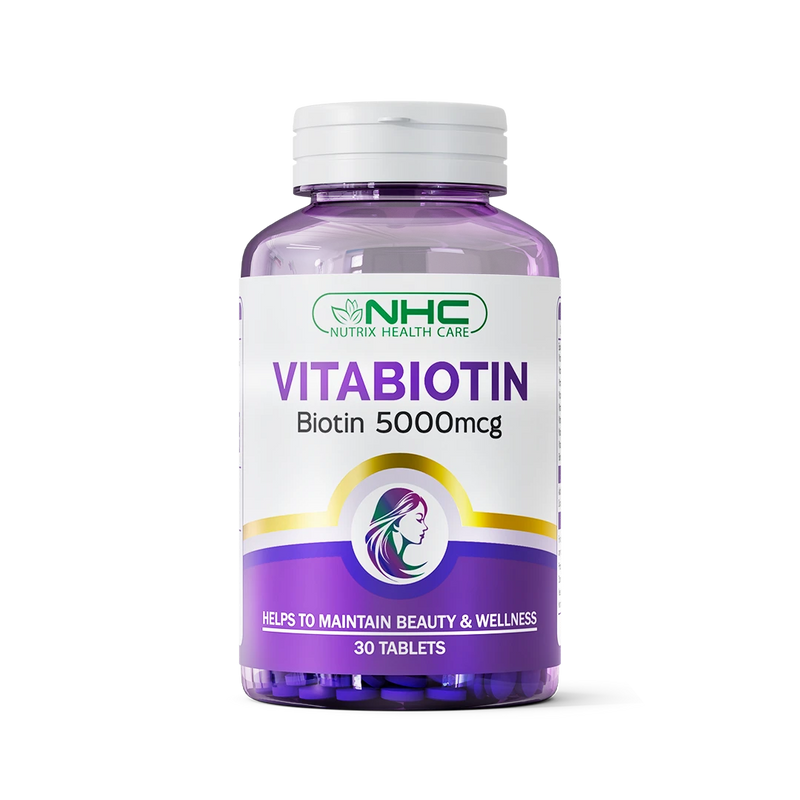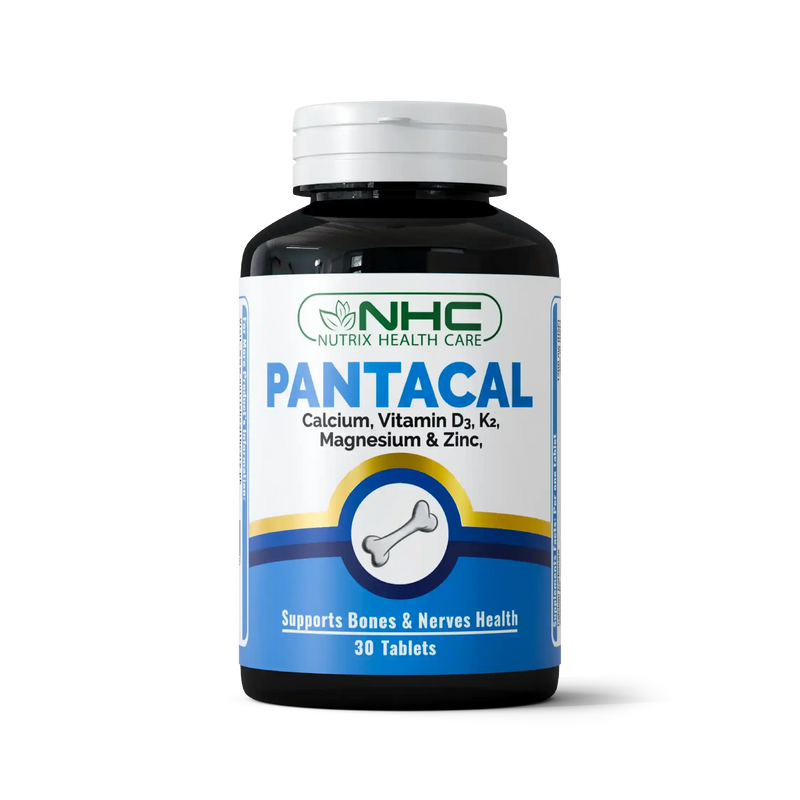PCOS: Exploring the Physical and Mental Challenges
Polycystic ovary syndrome (PCOS) is a disorder that causes hormonal imbalances in women of reproductive age, affecting their physical and mental health.
According to WHO, PCOS is one of the major public health concerns, affecting approximately 8-13% of women of reproductive age and up to 70% of the cases remain undiagnosed.
What is PCOS?
Polycystic ovary syndrome is a common hormonal condition that affects ovaries and hormone levels in females. This condition impacts nearly 1 in 10 women during their childbearing years.
PCOS affects the ovaries by enlarging them and causing multiple follicles with immature eggs to form around them. As a result, the ovaries do not function properly, compromising reproductive health.
Common Symptoms of PCOS
-
Irregular Periods

Women affected by this condition often experience irregular or infrequent menstruation due to high androgen levels and decreased estrogen levels.
-
High Androgen Levels
Hormonal imbalances lead to increased levels of male hormones, known as androgens, which can result in excessive body hair, acne, and bald patterns.
-
Acne, Weight Gain, Stress
Some other complications of PCOS may include infertility, weight gain, diabetes, miscarriages, premature birth, stress, depression, and anxiety. Acne and dark skin patches on the back of the neck and in the armpits are also quite common.
Physical Challenges of PCOS
PCOS-affected women primarily face physical health challenges due to hormonal and metabolic complications, including obesity, heart disease, diabetes, infertility, and endometrial cancer.
Around 43% of women and teenagers with PCOS experience metabolic complications, leading to a 50% increased risk of obesity, 31% increased risk of insulin resistance, and a 7.5% increased risk of type 2 diabetes.
1. Metabolic Complications
PCOS can lead to insulin resistance. Consequently, the pancreas produces more insulin and these elevated levels stimulate the ovaries to produce higher amounts of male hormones androgens.
The increased androgen levels cause symptoms like acne, irregular periods, and weight gain, particularly in the abdominal area. Moreover, insulin resistance and obesity significantly raise the risk of developing type-2 diabetes.
2. Reproductive Health Issues

In women with PCOS, the infertility rate is higher. Hormonal imbalances interfere with the production of follicle-stimulating hormone (FSH) and luteinizing hormone (LH), essential for the growth and release of eggs from the ovaries. As a result, women experience irregular ovulation, leading to infertility.
During pregnancy, this condition increases the risk of health complications, including pre-eclampsia, high blood pressure, gestational diabetes, heart disease, preterm birth, and miscarriages.
3. Long-term Health Risks
Studies have shown an increased prevalence of cardiovascular disease (CVD) risks, such as hypertension, dyslipidemia, and coronary heart disease, in women with this condition. It can also contribute to high concentrations of triglycerides and cholesterol, the root causes of heart disease.
In polycystic ovary syndrome, hormonal imbalances interfere with the ovulation process. Irregular or absent ovulation can cause the uterine lining to thicken and increase the risk of developing endometrial cancer
Mental and Emotional Challenges
1. Psychological Impact
PCOS is a multifaceted syndrome that not only affects an individual’s physical health but also their mental well-being. It can lead to stress, anxiety, depression, and mood disorders.
Research suggests that the prevalence of depression in such females is higher (28-64 %) as compared to other individuals.
2. Body Image and Self-Esteem
Low self-image and self-esteem are common issues in women with PCOS due to physical changes like acne, obesity, and excessive body hair.
A negative body image significantly impacts thoughts, moods, and behaviours in everyday life. It also reduces the quality of social interactions.
3. Stress of Living with PCOS

Living with this condition can be quite challenging. As mentioned above, it can significantly impact an individual’s self-esteem, body image, social behaviours, and lifestyle.
A study has shown that people with PCOS are six times more likely to experience stress, anxiety, and depression than the general population.
However, with certain coping strategies, it can be managed.
How to Cope with PCOS
1. Make Positive Lifestyle Changes
Exercise is an effective way to reduce stress and improve mood. You can also engage in physical activities like walking, yoga, and swimming to feel better.
Practice mindfulness and meditation every day. Meditation can calm the mind and provide mental clarity.
Eat a balanced diet, hydrate properly and sleep adequately to enhance your overall health. Try to reduce caffeine and alcohol intake as well.
2. Build a Support Network
Participating in support groups is a great way to share personal experiences, tips, and encouragement with others facing similar challenges. You can not only relate to other people but also help raise awareness and empower each other. Remember that you are not alone in this.
3. Do Not Hesitate to Seek Professional Help
It is never too late to start seeking professional help. You can try counselling and therapy. Medical professionals provide comprehensive awareness about PCOS and educate you about the required lifestyle modifications. In this way, you also feel more focused towards achieving goals and keeping track of progress.
4. Make Dietary Changes
Certain lifestyle changes in PCOS can help you manage symptoms effectively. Follow a high-fiber, low-sugar, and lean protein diet that includes fruits, vegetables, whole grains, nuts, and healthy fats.
Avoid processed and canned foods with high amounts of sugar, salt, and unhealthy fats. Eat six smaller meals throughout the day rather than three larger ones to help keep your blood sugar levels stable.
5. Focus on Self-Care!
Self-care is a vital part of the journey for women with PCOS. The physical and emotional changes accompanying this condition can take a toll on you. Self-care practices improve your mood, reduce stress, and give you the confidence to be yourself unapologetically.
Therefore, engage in activities that you love: try to spend more time with your friends, visit your favourite restaurants or libraries, and indulge in skincare routines. This self-love empowers women to take control of their health and take steps toward a healthier and happier life.
Start Your Wellness Journey with Nutrix Health Care’s Supplements
Healthy diets and the right supplements can help you manage PCOS effectively. Start your healing journey now with Nutrix Health Care’s E-Rose and Nucep.
E-Rose
E-Rose is a rich blend of Evening Primrose Oil and Vitamin E that supports hormonal balance in women and effectively reduces PCOS and PMS symptoms. It helps to reduce menstrual discomfort.
Evening Primrose Oil nourishes skin to reduce inflammation and acne, while Vitamin E provides antioxidant support for a strong immune system.
Nucep
Nucep is a blend of vital nutrients and inositols designed to support fertility and overall wellness. It supports healthy conception and promotes female reproductive health.
These supplements by Nutrix Health Care can make your healing and wellness journey smoother!
Conclusion
PCOS presents multiple physical and mental challenges. However, you can manage them through lifestyle and dietary changes. Along with a balanced diet, proper exercise, and self-care, you can try supplements like E-Rose and Nucep as partners in your PCOS wellness journey.
References:
hqlo.biomedcentral.com/articles/10.1186/1477-7525-11-141
mayoclinic.org/diseases-conditions/pcos/symptoms-causes/syc-20353439
ncbi.nlm.nih.gov/pmc/articles/PMC4527566/
ncbi.nlm.nih.gov/pmc/articles/PMC2683463/
ncbi.nlm.nih.gov/pmc/articles/PMC10874487/#:~:text=Research%20has%20shown%20that%20the,%25)%20%5B7%2D9%5D


